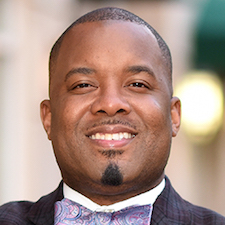 Researchers at the University of Alabama at Birmingham have created the first culturally based protocol for patients living with a serious illness or facing end-of-life care. The protocol was developed by Ronit Elk, a researcher in the Division of Gerontology, Geriatrics and Palliative Care at the university.
Researchers at the University of Alabama at Birmingham have created the first culturally based protocol for patients living with a serious illness or facing end-of-life care. The protocol was developed by Ronit Elk, a researcher in the Division of Gerontology, Geriatrics and Palliative Care at the university.
The authors of the protocol write that African Americans, when compared with Whites, are more likely to receive medically ineffective, poor quality, and high-cost palliative care, due to general mistrust of health care providers and a fragmented health care system that is generally insensitive to cultural differences that can guide treatment choices. Where middle-class Whites may emphasize individual choice, African American values support family-centered decision making. Faith, spiritual beliefs, and guidance of a spiritual leader are very meaningful to African Americans, especially as they cope with illness and make treatment decisions.
“End-of-life care values in the United States are historically rooted in values that represent the cultural and religious values of the White middle class, values that often do not apply, or even contradict, the values of people of different cultures or ethnicities,” Dr. Elk said. “Lack of respect for cultural differences may compromise care for seriously ill minority patients. Until recently, culturally appropriate models of palliative and end-of-life care have not been available in the United States.”
The protocol is now being implemented in rural hospitals in Alabama, Mississippi, and South Carolina to test the efficacy of the culturally-based intervention.
“This is an example of what is possible when health care providers truly listen to the voices of underserved or underrepresented groups and build health care programs based on those communities’ cultural values and preferences,” Dr. Elk explained.
The protocol was published on the website of the journal Health Equity. It may be accessed here.












